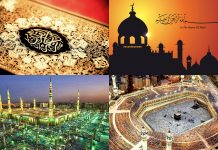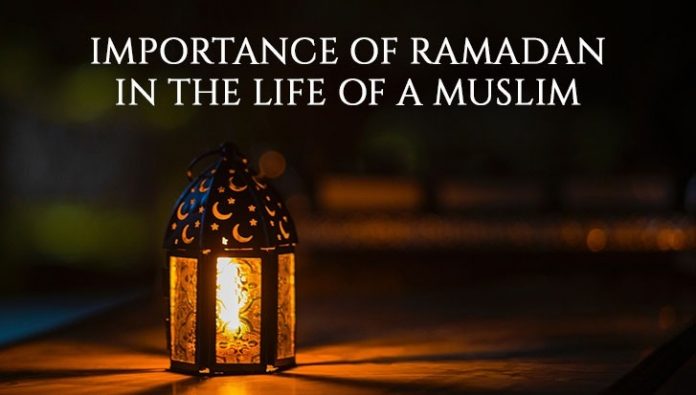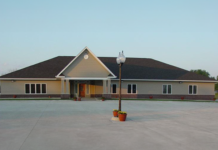Every religion has a sacred day. Our faith, Islam, is no different. We have a bunch of Islamic festivals spread across the year. Among these is the Month of Ramadan that holds extreme significance. It is an entire month in which Muslims devote themselves to the worship of their Allah (SWT) in a distinct yet beautiful manner.
What is Ramadan?
Ramadan is the ninth month of the Muslim lunar calendar. Health Muslim adults observe fast throughout this Month, from dawn to dusk. They stand in long night prayers and spend Zakah on the needy ones. Plus, there is specific importance laid on reading and understanding the Quran.
While all strive to please their Lord, each culture has its significant traditions in Ramadan. Whether it is the exceptional food they cook or having Iftar with fellows or neighbors – the underlying notion is to be generous and share the blessings.
This fall in line with the verse revealed in the Quran about Ramadan:
“The Month of Ramadhan [is that] in which was revealed the Qur’an, a guidance for the people and clear proofs of guidance and criterion. So whoever sights [the new moon of] the month, let him fast it; and whoever is ill or on a journey – then an equal number of other days. Allah intends for you ease and does not intend for you hardship and [wants] for you to complete the period and to glorify Allah for that [to] which He has guided you; perhaps you will be grateful.” [Quran 2:185]
Why Ramadan holds an Imminent Position in the Life of a Muslim?
There are several reasons why Ramadan is the most critical month for Muslims.
We have a glowing history of incidents that took place during this month. Following are some reasons why Muslims around the world celebrate Ramadan with vigor:
The Month of Holy Revelation
Muslims believe, and it is also stated in the Quran (as mentioned above), that the Holy Quran’s revelation started this Month. During this Month, Hazrat Jibrael (AS) descended for the first time for Holy Prophet (Peace Be Upon Him).
This Book of Guidance is an invaluable treasure trove of information on how we can live lives as good Muslims in this age. It establishes the core of Islamic faith, the dos and doesn’t’s, plus it also sheds light on the people’s stories in the past. The aim of mentioning stories is to let people know why those people were deemed, disbelievers.
The Night of Power (Laylat-al-Qadr)
The precise Night of revelation is a subject of debate by several Islamic scholars. However, they all stand unanimous on the fact that it is one of the odd nights in the last ten days of Ramadan. Many prefer to believe that it was the 27th Night of Ramadan when Hazrat Jibril (AS) first came to the Holy Prophet (Peace Be Upon Him) with the first Quranic revelation.
Muslims call it “Laylat-al-Qadr,” or “The Night of Power.”
Regarding this Night, Allah (SWT) says in the Quran:
“We sent it down on a Blessed Night: We have ever been sending warnings.”
[Quran 44:3]
Our Beloved Prophet Muhammad (Peace Be Upon Him) emphasized the virtues of praying during this Night. In one of his narrations, he states that anyone who fasted through the Month of Ramadan, with sincerity and hopes for reward, then all his past sins will be forgiven. He further adds that any individual who stood for prayer during Laylat-al-Qadr out of sincere faith and hopes for reward, his previous sins will be forgiven.
Gates of Paradise are Open, and Gates of Hell are Closed
Ramadan is a gift from Allah (SWT). Muslims should stay on their toes to capitalize from this Month and ensure they succeed in the Hereafter. It is reported in a Hadith of the Holy Prophet (Peace Be Upon Him) that when the Ramadan month starts, the gates of heaven are opened, and hell’s gates are closed. Furthermore, it states that devils are chained in this month.
It is the best time to refresh your relationship with Your Lord and seek His forgiveness. Allah (SWT) is the Oft-forgiving, and His mercy multiplies exponentially during this Month. We must strive hard during this period to gain forgiveness from Our Lord (SWT).
There are three opportunities that we get during this Month to obtain forgiveness for all our sins. The spiritual heart doctors agree on the fact that fasting softens the human heart. Plus, they are more receptive and humble during this Month because of constant recitation from the Quran. Perhaps this is the wisdom that links the night prayer and fasting. These are the two most distinctive worship acts this Month.
The Month of Endless Worship
An ordinary Muslim constantly struggles during this Month. They fast during the day, offer Taraweeh prayers at night, and stay up during the nights to please their Lord (SWT). There are some other acts of worship they make to gain Divine pleasure. These include:
I’tikaaf – Muslims reside in the mosque (women could observe it in their homes) and indulge in worship. Most Muslims observe I’tikaaf in the last ten days of Ramadan and end it on Eid Day.
Zakat – It is highly recommended to give charity during the Month. The obligatory charity, i.e., Zakat, is 2.5% of the wealth/assets/savings. Meanwhile, they can also give Sadaqah (voluntary charity) in Ramadan.
Iftaar – It is a highly rewarding act to offer Iftar to those who are fasting during Ramadan.
Umrah – Performing Umrah in Ramadan brings the reward that is equal to Hajj.
Conclusion
It is vital to note that our relationship with the Quran in this Month should not merely stay during Taraweeh prayers. Instead, we should try to develop a meaningful relationship with this Book. Try to understand the underlying meaning of the Quran and learn what your Lord (SWT) wants from you.
This is the month that brings us incredible opportunity to kill all our evil desires and obey our Lord (SWT). May the upcoming Month enhance our relationship with the Divine. Aameen!

































